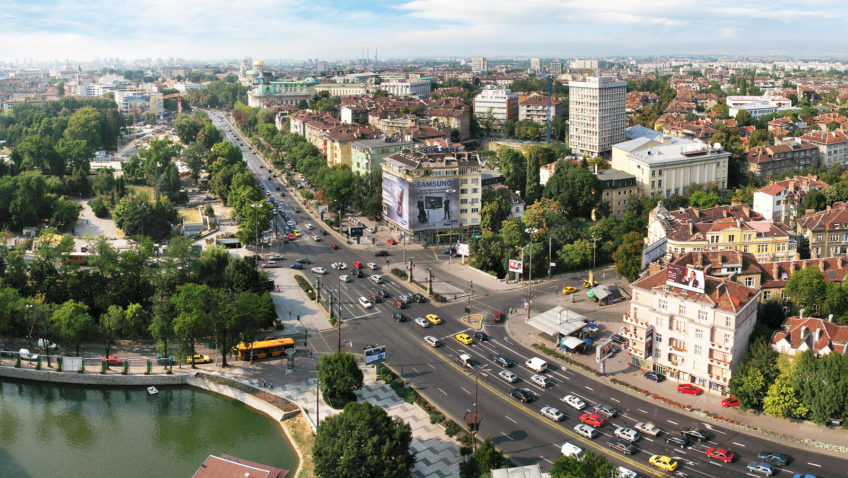Compiled by: Hristo Voynov and Eva Jovanova
- Hungary and Poland are taking yet another leap together in their attempt to fight against the EU establishment. The new Polish Prime Minister will spend his first trip abroad visiting his Hungarian counterpart, Viktor Orban. Orban’s support for Poland in the face of EU pressure has created the idea that EU sanctions are off the table as a form of pressure on Poland, as Hungary has veto power over any sanctions proposed. For now, Poland is planning a ‘counter offensive’ to respond to the triggering of Article 7 to find common ground with other nations in an effort to ease tensions within the EU. While this is a positive sign for EU unity, it is not entirely so. The Visegrad group is planning its own regional bank, which might further highlight the differences between it and the rest of the EU.
- For the Western Balkans, 2018 started with a healthy dose of optimism. The EU High Representative for Foreign Affairs and Security Policy Federica Mogherini published a list of “Twelve things to bring with us in the 2018” on her blog. The Western Balkans made it to the list’s third place. Mogherini writes that 2017 was a year of solving and addressing (deep) political crises in the Balkans, and considers 2018 to be the crucial year for the WB6 to fully commit to European Integration and start seriously implementing necessary reforms.
- The new Andrej Babis government in Czechia has announced planned changes for established government functions. The expressed reason is to speed up processes and strengthen the president’s ability to enact his policies. However, this reason has been used in many other cases in which a country’s leadership tried to reduce or change procedures in order to solidify their positions of power. With the Babis presidency just starting, this is an important development to follow.
4. 2017 ended happily for women, as main victims of domestic violence, in Macedonia, as President Ivanov signed a decree on approving the ratification of the Istanbul Convention, a Council of Europe Convention on combating and preventing domestic violence. 2018, however, started on a low note for gender equality in Bulgaria. Both MPs in government and in opposition joined forces in opposing the ratification of the Istanbul Convention as the government advised them this Wednesday to ratify the convention, which was adopted in 2011. Eight out of 21 ministers voted against the ratification. The plan to ratify the convention in Bulgaria dates back from April 2016, but there hasn’t been any success since.
5. President of Moldova, Igor Dodon, has been temporarily suspended over his refusal to nominate ministers. The decision is final and cannot be appealed. His website reads “Through today’s decision, the [court] has finally passed into the gray area of democracy and the rule of law”. The President of the Parliament, Andrian Candu, became the interim president and signed the appointments that Dodon blocked because of claims that they are incompetent and corrupt.
- The Federation of Bosnia and Herzegovina, one of the two main entities comprising Bosnia and Herzegovina, enters 2018 without a budget. No budget has been adopted at state level either. This is a result of the entity’s prevalently Croat and Bosniak ruling parties. The Bosniak Party of Democratic Action (SDA) in government, the Alliance for Better Future of Bosnia and the Croatian Democratic Union of Bosnia (HDZ BiH) were the main parties that couldn’t come to an agreement. Thus, everything, except salaries and pensions, will have to be put on hold for at least three months so that the entity could function.
- In a positive development in Ukraine, the largest prisoner swap since the conflict started had 74 government soldiers returned in exchange for 230 rebels. Ukrainian president stated that no Russian citizens were released, leaving open the question of whether there are any Russian soldiers in Ukrainian hands, or if they are being held for a greater prisoner swap. In unrelated news, Kiev was shocked after human rights activist and lawyer was murdered. While this is a domestic incident, it does not speak well for the rule of law within Ukraine.
8. An inquiry by the Hague war crime tribunal stated that the suicide of the Croat general Slobodan Praljak after ICTY’s sentence on November 29 couldn’t have been prevented. The inquiry stated that it was impossible to track how the poison came into Praljak’s possession. The inquiry concluded that poison Praljak drank was potassium cyanide, which could have been dissolved in water. This helped the poison stay undetected by the prison guards.
9. Poland has assumed its position in the UN Security Council, the most powerful position in the international sphere. It will be rotated out of the position after two years, making this the sixth time that Poland has occupied the seat. Polish Foreign Minister Witold Waszczykowski said that the country will try to tackle global conflict hotspots, specifically Syria and Ukraine, calling for a UN mission in Donbas to complement the current OSCE mission. Polish President Andrzej Duda is planning on making a major foreign policy speech on January 11th which is expected to further spell out Poland’s foreign policy priorities.
10. Serbia’s ruling SPS (Serbian Progressive Party) might decide on scheduling fresh elections this spring. The presidency of the party will meet on January 10 to discuss the issue. If fresh parliamentary elections were scheduled, they would most likely coincide with the Belgrade municipal election. It is dubious why fresh parliamentary elections should be scheduled this spring since SPS already enjoys strong majority in parliament since the 2016 election. Aleksandar Vucic, SPS’s president and Serbia’s current President came to power as Prime Minister in 2012, and since then introduced scheduling extraordinary parliamentary elections every two years.


0 comments